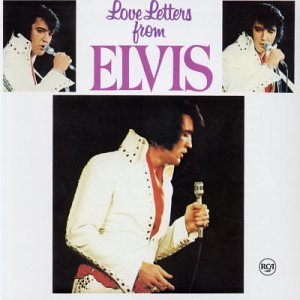Volveremos
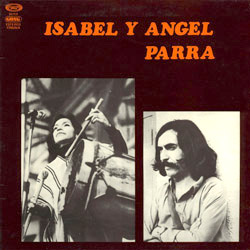
Album "Isabel y Ángel Parra" (1976)
Cuánta ternura me diste,
(Continues)
(Continues)
2010/9/27 - 23:13
When Hate Becomes Commonplace

Album: "God is dead and we survive"
War, terrorism, and suicide bombers dominate the news. It is hard not to be overwhelmed by despair; or worse, reduced to apathy; the real harbinger of the apocalypse.
This song is our clarion call: “When hate becomes commonplace, it is time to change the human race.” Act now; or forever wish for peace.
(Paul Abramson)
War, terrorism, and suicide bombers dominate the news. It is hard not to be overwhelmed by despair; or worse, reduced to apathy; the real harbinger of the apocalypse.
This song is our clarion call: “When hate becomes commonplace, it is time to change the human race.” Act now; or forever wish for peace.
(Paul Abramson)
Terrorist threat is everywhere.
(Continues)
(Continues)
Contributed by Paul Abramson 2010/9/27 - 23:04
Cosa resta
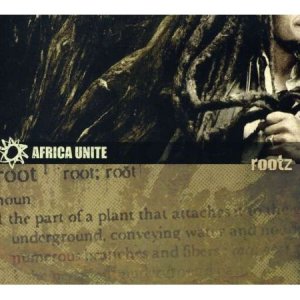
da "Rootz" (2010)
"È la fotografia di ciò che ci circonda" spiega Bunna, il cantante degli Africa Unite, "giorno per giorno ci stanno togliendo i diritti nei posti di lavoro, nelle scuole, ma nessuno sembra avere la forza di reagire. Ci si abitua a questa lenta asfissia di libertà, non succede nulla, sembra tutto normale e invece non lo è affatto. Ma c'è un problema di fondo, sarebbe importante e necessario informarsi, mentre oggi l'informazione è veicolata dagli strumenti di consenso delle tv nelle mani della politica. Giovani con la voglia di nuovo ce ne sono, anche ai nostri concerti. Ma la maggioranza vive nell'inconsapevolezza".
"È la fotografia di ciò che ci circonda" spiega Bunna, il cantante degli Africa Unite, "giorno per giorno ci stanno togliendo i diritti nei posti di lavoro, nelle scuole, ma nessuno sembra avere la forza di reagire. Ci si abitua a questa lenta asfissia di libertà, non succede nulla, sembra tutto normale e invece non lo è affatto. Ma c'è un problema di fondo, sarebbe importante e necessario informarsi, mentre oggi l'informazione è veicolata dagli strumenti di consenso delle tv nelle mani della politica. Giovani con la voglia di nuovo ce ne sono, anche ai nostri concerti. Ma la maggioranza vive nell'inconsapevolezza".
Non si muove foglia, ma tira brutta aria
(Continues)
(Continues)
2010/9/27 - 09:55
Russian Dolls
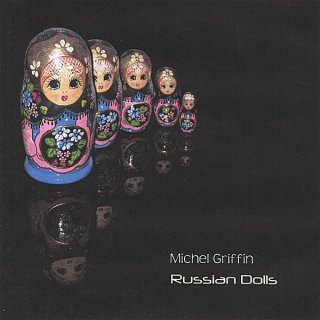
[2007]
Lyrics & music by Michel Griffin
Vocal harmonies by Maryline Dumont.
Album: Russian Dolls
A song about power, greed, deception and violence. Maybe one day we'll learn to live in peace, content with our lot. Till then, we're hostage to the greedy with the guns.
"The song began with its second line, which came to me as I was lunching with my wife in a sleepy little riverside restaurant in the north of Spain. I happened to glance out of the window and saw 2 Mercedes following each other like sleek sharks along the water's edge.
But I'd been wanting to write about the relationship between greed, power, violence and media-control for some time. The Russian Doll was a natural image, that came to me again by chance: the previous day I'd seen a lovely set of dolls at my brother-in-law's.
It took a long time to get the chorus as I wanted it. I finally finished the song in Yorkshire, 4 months after I'd begun it".
Lyrics & music by Michel Griffin
Vocal harmonies by Maryline Dumont.
Album: Russian Dolls
A song about power, greed, deception and violence. Maybe one day we'll learn to live in peace, content with our lot. Till then, we're hostage to the greedy with the guns.
"The song began with its second line, which came to me as I was lunching with my wife in a sleepy little riverside restaurant in the north of Spain. I happened to glance out of the window and saw 2 Mercedes following each other like sleek sharks along the water's edge.
But I'd been wanting to write about the relationship between greed, power, violence and media-control for some time. The Russian Doll was a natural image, that came to me again by chance: the previous day I'd seen a lovely set of dolls at my brother-in-law's.
It took a long time to get the chorus as I wanted it. I finally finished the song in Yorkshire, 4 months after I'd begun it".
There's blood upon the pavement, there's a scuffle on the ledge;
(Continues)
(Continues)
Contributed by giorgio 2010/9/27 - 08:34
Sport Futility Vehicle Tango
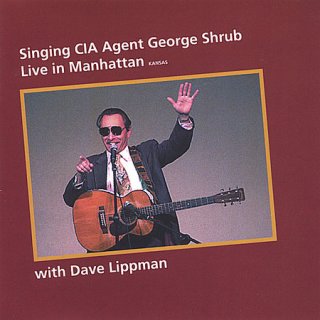
[2003]
Lyrics by Dave Lippman, sung to the tune of "I Like to Be In America", "Why Can't We Be Friends", "8 Miles High", "Imagine", "12 Days of Christmas", "Auld Lang Syne"
Album: Singing CIA Agent George Shrub Live in Manhattan
"The war in Iraq isn't about oil... It's about something much deeper, something that derives from our Western values. I speak, of course, of gasoline".
Lyrics by Dave Lippman, sung to the tune of "I Like to Be In America", "Why Can't We Be Friends", "8 Miles High", "Imagine", "12 Days of Christmas", "Auld Lang Syne"
Album: Singing CIA Agent George Shrub Live in Manhattan
"The war in Iraq isn't about oil... It's about something much deeper, something that derives from our Western values. I speak, of course, of gasoline".
(I Like to Be In America):
(Continues)
(Continues)
Contributed by giorgio 2010/9/27 - 08:24
Downward Hostility
[1995]
Lyrics & Music by Carl E. Gunther
This song describes how people who are being oppressed are sometimes manipulated into directing their rage at others even worse off than themselves, rather than trying to throw off the shackles of their oppression. It was inspired by a remark made by Eric Mann, founder and director of the Labor/Community Strategy Center(http://www.thestrategycenter.org/), to the effect that instead of upward mobility, today we have downward hostility. Which is to say that people whose futures have been damaged or destroyed sometimes direct their rage at others even worse off than themselves, rather than dealing with those who are responsible for their own oppression.
Racism provides a powerful tool in promoting this kind of self-destructive behavior, and it is used expertly by politicians who attempt to turn anger that might otherwise be directed at themselves... (Continues)
Lyrics & Music by Carl E. Gunther
This song describes how people who are being oppressed are sometimes manipulated into directing their rage at others even worse off than themselves, rather than trying to throw off the shackles of their oppression. It was inspired by a remark made by Eric Mann, founder and director of the Labor/Community Strategy Center(http://www.thestrategycenter.org/), to the effect that instead of upward mobility, today we have downward hostility. Which is to say that people whose futures have been damaged or destroyed sometimes direct their rage at others even worse off than themselves, rather than dealing with those who are responsible for their own oppression.
Racism provides a powerful tool in promoting this kind of self-destructive behavior, and it is used expertly by politicians who attempt to turn anger that might otherwise be directed at themselves... (Continues)
I was just an ordinary working slob
(Continues)
(Continues)
Contributed by giorgio 2010/9/27 - 08:20
فارس عودة
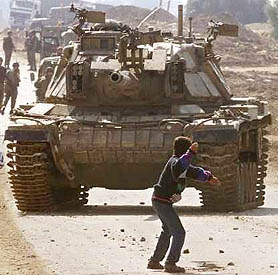
Si chiamava Fares Odeh – Faris Awdah, letteralmente “Cavaliere del Ritorno” – il quattordicenne di Gaza che nel 2000 fu fotografato mentre lanciava un sasso contro un carro armato. Due settimane dopo, fu ucciso da un cecchino israeliano.
La foto è molto nota, ma solo in rete, a differenza di quella del ragazzo che a Pechino si piazza davanti a un carro armato, non la vedrete mai sui media ufficiali.
La distinzione non sta solo nel diverso avversario, l’intoccabile Israele contro il “regime comunista” cinese. Sta anche nel senso del gesto: la cultura ormai universalizzata della “non violenza” in Occidente significa in realtà che è ammessa solo la violenza di stato. A cui si può obiettare, ma a cui non si deve mai reagire. Sta allo stato, eventualmente, concederti udienza. E se no, ti arrangi.
Rim Banna ha dedicato questa canzone a Faris Odeh.
(Miguel Martinez da Kelebek)
La foto è molto nota, ma solo in rete, a differenza di quella del ragazzo che a Pechino si piazza davanti a un carro armato, non la vedrete mai sui media ufficiali.
La distinzione non sta solo nel diverso avversario, l’intoccabile Israele contro il “regime comunista” cinese. Sta anche nel senso del gesto: la cultura ormai universalizzata della “non violenza” in Occidente significa in realtà che è ammessa solo la violenza di stato. A cui si può obiettare, ma a cui non si deve mai reagire. Sta allo stato, eventualmente, concederti udienza. E se no, ti arrangi.
Rim Banna ha dedicato questa canzone a Faris Odeh.
(Miguel Martinez da Kelebek)
ستحملك الفراشة إلى ظهر غيمة
(Continues)
(Continues)
2010/9/26 - 12:18
Song Itineraries:
The Palestinian Holocaust
Potere al popolo
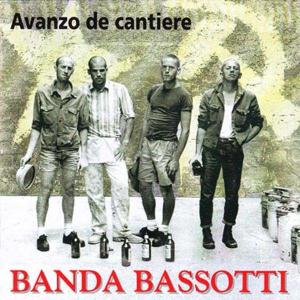
[1995]
Album: Avanzo de cantiere
Album: Avanzo de cantiere
Chi ci governa vuole riportarci indietro a cent'anni fa
(Continues)
(Continues)
Contributed by DonQuijote82 2010/9/25 - 14:48
Amo la mia città

2006
Vecchi cani bastardi
Dedicata a Roma
Vecchi cani bastardi
Dedicata a Roma
Amo la mia città
(Continues)
(Continues)
Contributed by DonQuijote82 2010/9/25 - 14:41
Beat Ska Oi

[1995]
Album: Avanzo de cantiere
Album: Avanzo de cantiere
Ska-riko come una pila usata
(Continues)
(Continues)
Contributed by DonQuijote82 2010/9/25 - 14:38
Do prostego człowieka
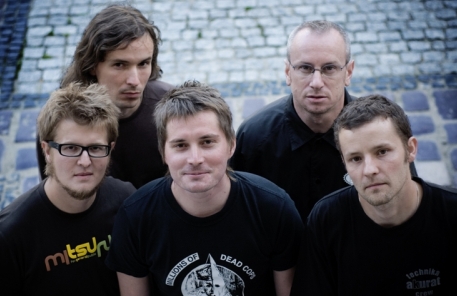
(1929)
Do prostego człowieka (A un uomo semplice) è una poesia di Julian Tuwim pubblicata per la prima volta il 7 novembre 1929. Divenne da subito popolare per il suo forte messaggio pacifista e contro la guerra. La poesia si prende gioco del militarismo, dell'ardore e dell'isteria patriottarda, e lascia intendere che sono sempre i potenti a raccogliere i profitti dalle guerre di cui la gente comune paga il il prezzo.
Recentemente è stata tradotta in inglese da Marcel Weyland ed ha conosciuto una nuova popolarità grazie ai numerosi gruppi rock che l'hanno messa in musica. Una delle versioni più conosciute è quella della band Akurat.
*
Do prostego człowieka (English: To the Simple Man) is a poem by Julian Tuwim. Published for the first time in the November 7, 1929 edition of Robotnik daily, it immediately became popular due to its' strong pacifist and anti-war message. The poem mocks... (Continues)
Do prostego człowieka (A un uomo semplice) è una poesia di Julian Tuwim pubblicata per la prima volta il 7 novembre 1929. Divenne da subito popolare per il suo forte messaggio pacifista e contro la guerra. La poesia si prende gioco del militarismo, dell'ardore e dell'isteria patriottarda, e lascia intendere che sono sempre i potenti a raccogliere i profitti dalle guerre di cui la gente comune paga il il prezzo.
Recentemente è stata tradotta in inglese da Marcel Weyland ed ha conosciuto una nuova popolarità grazie ai numerosi gruppi rock che l'hanno messa in musica. Una delle versioni più conosciute è quella della band Akurat.
*
Do prostego człowieka (English: To the Simple Man) is a poem by Julian Tuwim. Published for the first time in the November 7, 1929 edition of Robotnik daily, it immediately became popular due to its' strong pacifist and anti-war message. The poem mocks... (Continues)
Gdy znów do murów klajstrem świeżym
(Continues)
(Continues)
Contributed by eroz 2010/9/24 - 18:26
Cartas desde el asilo
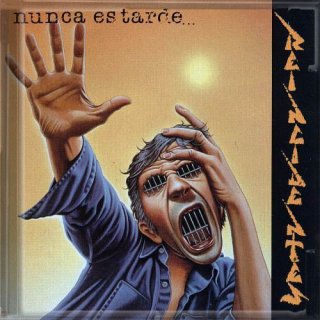
Album :Nunca es tarde
Di mi vida por pensar que veriais algo destino
(Continues)
(Continues)
Contributed by adriana 2010/9/24 - 18:01
Cordova

[2010]
Lyrics & Music by David Rovics
Album: Ten New Songs
"On Earth Day last I was on a plane headed to Europe, reading Riki Ott's fantastic book, One Last Drop, about Exxon Valdez disaster, just as the oil began to gush off the Louisiana coast. Anyway, this song is about a particular incident in 1993 when fishermen blockaded the harbor".
Lyrics & Music by David Rovics
Album: Ten New Songs
"On Earth Day last I was on a plane headed to Europe, reading Riki Ott's fantastic book, One Last Drop, about Exxon Valdez disaster, just as the oil began to gush off the Louisiana coast. Anyway, this song is about a particular incident in 1993 when fishermen blockaded the harbor".
I am a fisherman, so were my parents
(Continues)
(Continues)
Contributed by giorgio 2010/9/24 - 06:17
Party of God

[2005]
Album: Disciples of Wilayah
I found this beat on a Islamic website, It is composed by some talented Muslim brothers, I thought I'd do a lil remix.
Album: Disciples of Wilayah
I found this beat on a Islamic website, It is composed by some talented Muslim brothers, I thought I'd do a lil remix.
Imma protest with rhyme!
(Continues)
(Continues)
Contributed by giorgio 2010/9/23 - 06:08
La corte dei miracoli
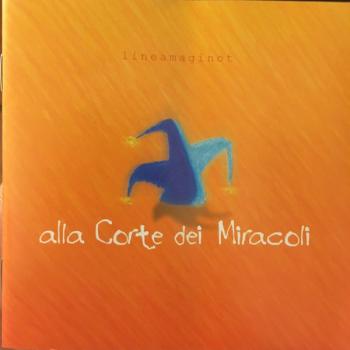
2004
Alla corte dei miracoli
Alla corte dei miracoli
Guardando intorno vide appena il giorno.
(Continues)
(Continues)
Contributed by DonQuijote82 2010/9/22 - 11:12
Piccole mani

2004 Alla corte dei miracoli
Solo piccole voglie per chi non può sentire,
(Continues)
(Continues)
Contributed by DonQuijote82 2010/9/22 - 11:08
Fame
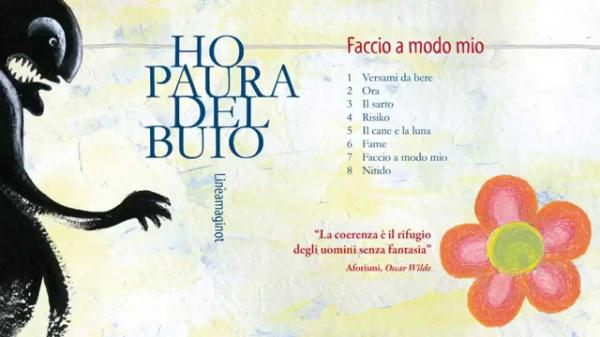
2010
Ho paura del buio
Ho paura del buio
L’uomo nero fa, lui fa paura ai bimbi di ogni civiltà.
(Continues)
(Continues)
Contributed by Donquijote82 2010/9/22 - 11:06
Risiko

2010
Ho paura del buio
Ho paura del buio
Lei ti porge il tè. Sorride corta, sbottonata
(Continues)
(Continues)
Contributed by DonQuijote82 2010/9/22 - 11:01
Song Itineraries:
Deserters
Ninna nanna intorno al mondo
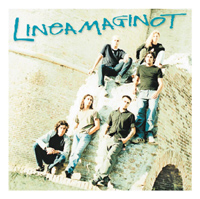
Ninnananna a chi sta male e ninnananna a chi sta bene,
(Continues)
(Continues)
Contributed by DonQuijote82 2010/9/22 - 10:58
Who Will Pay
[1993]
Lyrics & Music by Carl E. Gunther
The systems that support life on Earth are being ravaged by powerful hierarchies of control and exploitation. The verses of this song describe three defining moments in the history of the attack upon the viability of our planet and our species.
Lyrics & Music by Carl E. Gunther
The systems that support life on Earth are being ravaged by powerful hierarchies of control and exploitation. The verses of this song describe three defining moments in the history of the attack upon the viability of our planet and our species.
Notes
The first verse is inspired by the Exxon Valdez oil spill.
The second verse is a synthesis of Union Carbide's gassing of Bhopal with cyanide fumes and the lesser-known Texaco refinery explosion that spread toxic fumes through the economically disadvantaged neighborhood of Wilmington, California.
The third verse was inspired by the bombing of Iraq during the first Gulf War.
(giorgio)
The first verse is inspired by the Exxon Valdez oil spill.
The second verse is a synthesis of Union Carbide's gassing of Bhopal with cyanide fumes and the lesser-known Texaco refinery explosion that spread toxic fumes through the economically disadvantaged neighborhood of Wilmington, California.
The third verse was inspired by the bombing of Iraq during the first Gulf War.
(giorgio)
I
(Continues)
(Continues)
Contributed by giorgio 2010/9/22 - 06:19
Inmigrantes
[2009]
Letra y música: Tony Raffin
Álbum: En trance
Problemas, abusos y vicisitudes de los inmigrantes bolivianos en Argentina.
Letra y música: Tony Raffin
Álbum: En trance
Problemas, abusos y vicisitudes de los inmigrantes bolivianos en Argentina.
Inmigrantes, somos solo inmigrantes..
(Continues)
(Continues)
Contributed by giorgio 2010/9/21 - 07:25
Song Itineraries:
The War of Labour: Emigration, Immigration, Exploitation, Slavery
Per liberare la mia terra
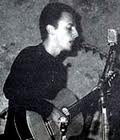
dall'LP “Il poeta urbano” (1976)
Giorgio Lo Cascio ha lasciato alcune belle canzoni, come delle facce vere, magari con il senno di poi un pochino ingenue, di quegli anni settanta che ha attraversato con una forza, una coerenza e un impegno che oggi non esistono praticamente più, spazzate via dal qualunquismo e dal nulla che ci circondano.
Giorgio, purtroppo se ne è andato troppo presto, ma non tanto da non scorgere l’attuale deriva sociale e democratica che ci sta di fronte.
Chi nel 1976 quando ascoltava questa canzone pensava al popolo cileno che cercava di riconquistare la sua terra violentata dal profitto delle multinazionali e dei loro servi.
Oggi, quando risentiamo questa canzone, possiamo solo pensare alla nostra terra massacrata dal disimpegno morale, sociale e politico.
“Nessuno ti regalerà mai la tua libertà. La tua libertà puoi soltanto prendertela tu stesso.” Dal film “Queimada” di Gillo Pontecorvo
Giorgio Lo Cascio ha lasciato alcune belle canzoni, come delle facce vere, magari con il senno di poi un pochino ingenue, di quegli anni settanta che ha attraversato con una forza, una coerenza e un impegno che oggi non esistono praticamente più, spazzate via dal qualunquismo e dal nulla che ci circondano.
Giorgio, purtroppo se ne è andato troppo presto, ma non tanto da non scorgere l’attuale deriva sociale e democratica che ci sta di fronte.
Chi nel 1976 quando ascoltava questa canzone pensava al popolo cileno che cercava di riconquistare la sua terra violentata dal profitto delle multinazionali e dei loro servi.
Oggi, quando risentiamo questa canzone, possiamo solo pensare alla nostra terra massacrata dal disimpegno morale, sociale e politico.
“Nessuno ti regalerà mai la tua libertà. La tua libertà puoi soltanto prendertela tu stesso.” Dal film “Queimada” di Gillo Pontecorvo
Ed infine ho detto addio ai miei monti,
(Continues)
(Continues)
Contributed by i.fermentivivi 2010/9/21 - 05:47
The Damage We Have Done
[1993]
Lyrics & Music by Carl E. Gunther
The Damage We Have Done
Lyrics & Music by Carl E. Gunther
The Damage We Have Done
I heard it on the news today
(Continues)
(Continues)
Contributed by giorgio 2010/9/20 - 06:24
×
![]()

